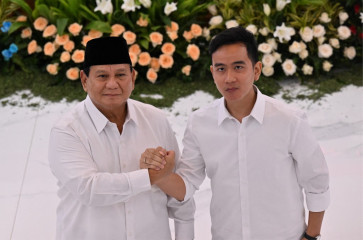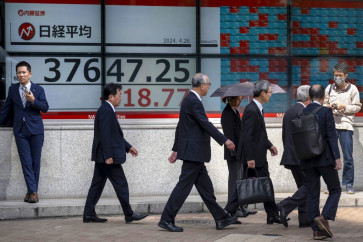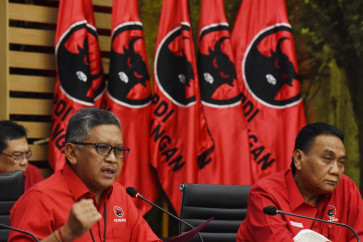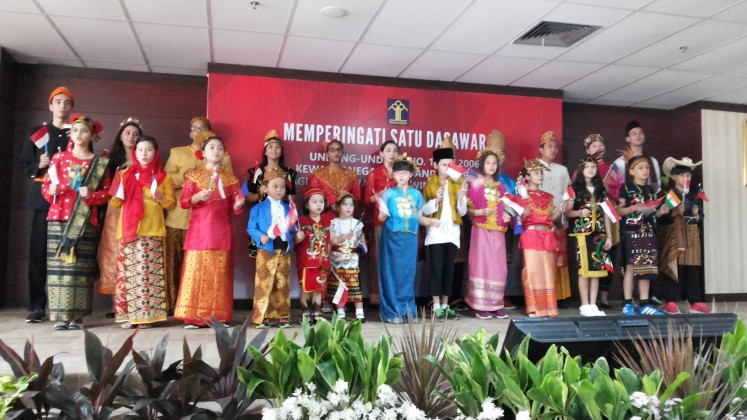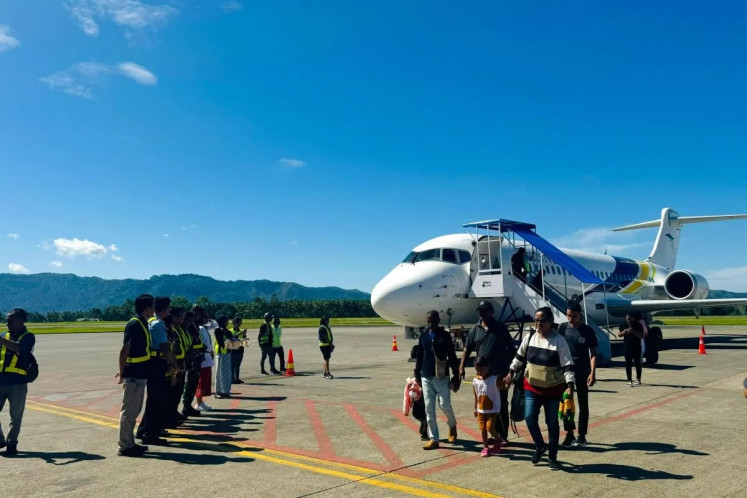EU, UN, courts work together to bolster justice
The Supreme Court is cooperating with the EU and the UN Development Program (UNDP) to run a justice reform project in an attempt to improve the transparency, integrity and accountability of the Indonesian judiciary
Change Size

T
he Supreme Court is cooperating with the EU and the UN Development Program (UNDP) to run a justice reform project in an attempt to improve the transparency, integrity and accountability of the Indonesian judiciary.
The project, also known as SUSTAIN, comprises training programs for all court personnel on internal and external oversight mechanisms.
The project, which will end in July 2019, will also train judges and court officials on how to ensure transparency in case management and judicial decisions.
The EU and UNDP have provided around ¤10 million (US$10.6 million) to finance the project.
Supreme Court chief justice Hatta Ali said the program would be launched at pilot courts in Ambon, Bandung, Bitung in North Sulawesi, Cibinong in West Java, Jayapura, Kabanjahe in North Sumatra, Manado, Kupang, Medan, Pontianak, Singkawang in West Kalimantan and Sorong in West Papua.
'We will also focus on improving the justice system in special courts, such as children's courts and fisheries and environmental courts,' Hatta told a press conference in Tuesday.
The impetus for the program, he added, had come entirely from the EU and UNDP, making it entirely free of political agendas.
SUSTAIN chief technical adviser Gilles Blanchi said that Indonesia had embarked on a very ambitious program of justice reform.
In the last eight years, Blanchi said, Indonesia had made commendable progress in pursuing transparency in its justice management system, evidenced by online data containing court decisions, making them accessible to the public. 'Eight years ago, very few judicial decisions were published, so Indonesia has clearly made enormous progress,' he said.
The project, he said, also aimed to increase public trust in the country's judiciary, allowing people insight into the reasoning behind decisions and verdicts.
Blanchi expressed hope that in time, Indonesia could earn a reputation as a just and transparent nation
'None of us can eradicate corruption. Corruption won't disappear. What we can do is ensure that corrupt practices are more difficult,' he said, adding that utmost transparency was key to such progress.
For the fisheries court, Blanchi said, the project would provide training not only for judges, but also prosecutors, sea police and investigators to ensure that fisheries crimes were prosecuted in the most transparent way possible.
UNDP Indonesia director Christophe Bahuet, meanwhile, said that improving the fisheries and environmental courts was vital to ensuring environmental preservation.
'The court deals with important and specific issues in Indonesia, so we have to [improve its capability]. Other special courts may also be listed in the project's target,' Bahuet said.
EU Ambassador to Indonesia and Brunei Darussalam Vincent Guerend said that it was important to remind all justice institutions to protect the rights of populations most at risk of violence and abuse, such as women and children.
'We are confident that this partnership will bring tangible results in enhancing the Indonesian justice system and public confidence in courts,' Guerend said. (foy)

